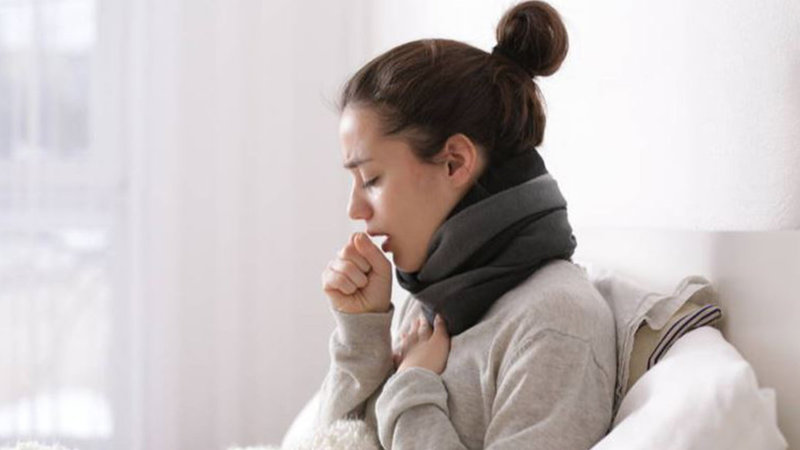The Most Effective Remedies For Each Type Of Cough
Cough is the most common symptom in medical consultations and is not exclusive to the winter season. How many types of cough are there? 
What are the appropriate drugs and/or natural remedies for each case? When should you go to the doctor? In this article, you will find answers to above all questions. The body usually manifests aches and pains that we must interpret as signs that something is not quite right somewhere in our body.
Cough is one of those signs, but only a professional diagnosis can tell us the cause and treatment. However, it is appropriate to inform yourself about the different types of cough and their remedies, as they are an important means of spreading respiratory tract infections that must be stopped as soon as possible for the sake of our own health and that of others.
The cough can be dry when it only expels air, or wet (productive) when the air is accompanied by sputum (produces expectoration). If it lasts less than three weeks, it will be acute, but if it lasts more than eight weeks, it is considered chronic. According to the way it is presented, it can be spasmodic, wheezing, convulsive, nocturnal, exertion, etc. Next, we will analyze the two most frequent types of cough: dry and wet.
How to deal with dry cough?
A dry cough is very bothersome and usually becomes chronic, as it irritates the trachea and pharyngeal mucosa, causing more and more cough. It is advisable to go to the pharmacist or GP as soon as possible to stop it on time, since it also intensifies when the person is lying down, preventing proper rest.
It can be treated with drugs or natural remedies. Among all the syrups and tablets for dry cough, one of the best-known brands are Robafen Cough (Robitussin) and Vicks Dayquil Cough based on Diphenhydramine, which reduces cough in 20 or 30 minutes after taking it.
Codeine, which was one of the most used antitussives for many years, has been discouraged since 2013 in children under 12 and pregnant women, and it is less and less prescribed as it is not always effective and has several side effects.
Regarding natural remedies, products based on Ginger, Licorice root, Garlic, Peppermint, or you can use popular brand products such as:
- Dabur Honitus
- Divya Swasari Pravahi
- Baidyanath Bhringrajasava
- Tulsicof Ayurvedic cough syrup
- Himalaya Koflet
- Hamdard Joshina
- Zandu Zefs Cough Syrup
The products are recommended, in addition to consuming honey frequently to relieve irritation. To fluidize secretions, the best is eucalyptus.
How to deal with wet or productive cough?
This other type of cough is called “productive” since it has a beneficial function for the body, helping to expel the mucous secretion from the lower respiratory tract.
The removed sputum has very variable characteristics and it is advisable to be aware of them. If it is deep yellow, green, reddish-brown, or bloody, it is a reason for urgent consultation with a doctor, as well as if it causes chest pain, dyspnea, or labored breathing.
There are some specific syrups to relieve this type of cough, but if it does not present the aforementioned signs or last more than six days, it is best to let it flow naturally until it does its job, which is to clear the airways.
Meanwhile, to reduce discomfort and accompany the natural healing process, natural expectorant-acting products can be consumed, such as Tumeric Milk, Giloy Juice, Honey mixed with Mulethi, and Cinnamon, Black Pepper, Pomegranate Juice for Kids, Spiced Tea. Always cautiously and guided by an expert in natural medicine.
How to minimize cough discomfort?
Beyond drugs and natural remedies, there are other measures that we can take in our daily habits and that collaborate to relieve cough faster.
- Hydration: It is key in any type of cough since it allows fluidization of secretions to eliminate them more easily. That is why it is important to drink a lot of liquid: broths, infusions, milk, fruit juice, and of course, water. The dry cough will be alleviated because the respiratory tract is moistened avoiding more coughs, and wet cough will have a greater productive effect as liquids fluidize the mucus to expel it better.
- Humidifies the environments: Especially in dry climates or in the winter months when the heating is turned on, it is essential to place containers with water in various corners of the home in order to increase the humidity of the different environments, since dry air worsens the cough.
- Correct your posture: The cough produces a violent expiration that prevents rest and the development of some daily and habitual tasks. Therefore, taking care of the posture it is possible to reduce the impact of that expiration. When resting, it is advisable to lie face down, with the upper half of the body uncovered, or to place several pillows behind the back and neck to elevate the airways and get better air passage.
- Lubricates the throat by stimulating salivation: It is a natural lubricant that the body generates and that considerably relieves irritation. It is recommended to use candy, antiseptic, or balsamic pills to keep the throat moist in case of dry cough.
When to visit a doctor?
- When should you visit the doctor? In cases where the secretions have yellow, green, or reddish colors, as indicated above, it is urgent to go to a medical center.
- Likewise, if the cough lasts more than 6 days, causes chest pain or vomiting, and if you have a recurring nighttime cough of more than two weeks of evolution, you should receive an adequate medical diagnosis. And of course, if there are special noises in the throat area, such as diphtheria or whooping cough.
- The pharmacist may also advise on antitussive syrups and tablets. The important thing is to act at the first symptoms and avoid self-medication. Early diagnosis and medical treatment will minimize the chances of the problem getting worse.






















